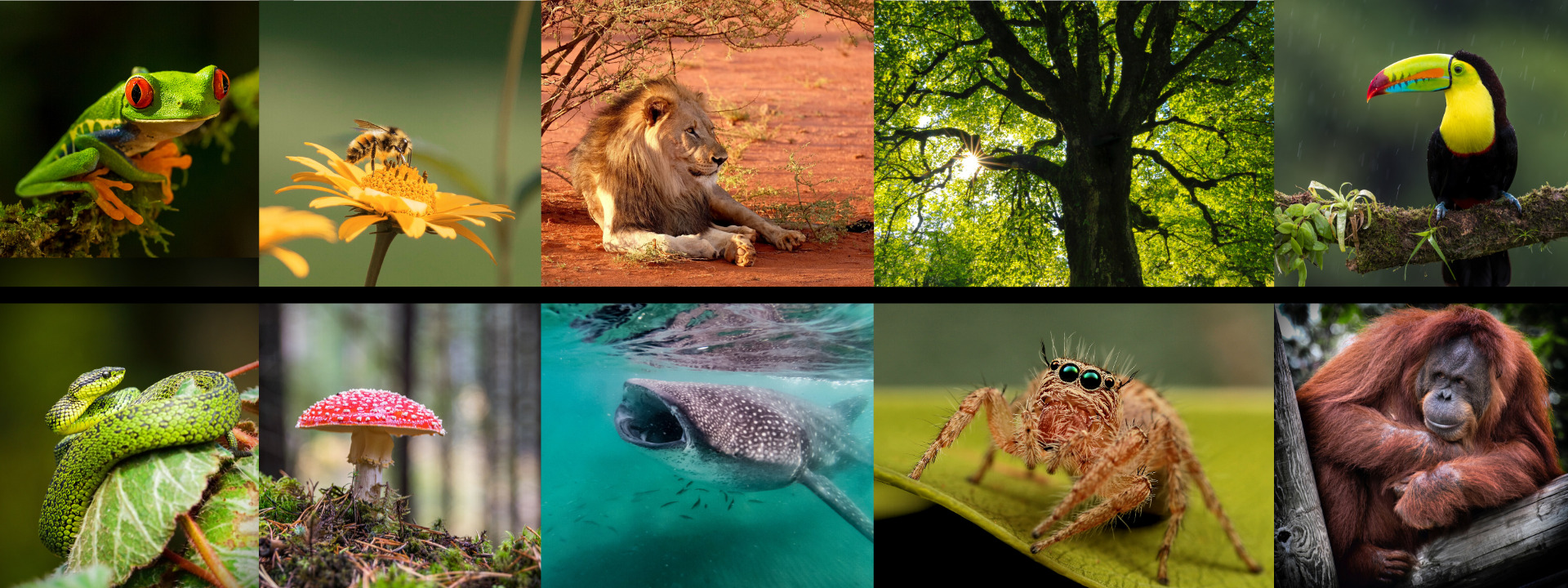
Poll: Two-thirds want same or greater priority for extinctions as for climate change
28 September 2020
immediate use
Poll: Two-thirds want same or greater priority for extinctions as for climate change
64 per cent of people in the UK want world leaders to dedicate the same amount or more priority on preventing biodiversity loss as is currently given to tackling climate change (1). This is the headline finding of a poll commissioned by campaigning charity Population Matters as global leaders announce a Leaders’ Pledge for Nature today in the run-up to a critical UN Summit on Biodiversity this week (2).
Following high profile recent media coverage on the biodiversity crisis – including the BBC programme Extinction: the facts, presented by Population Matters patron Sir David Attenborough – the Populus poll of 2,000 adults also found that 91 per cent are concerned or very concerned about the loss of species of animals and plants.
When asked to rank five options (plastic pollution, climate change, running out of Earth’s resources; loss of forests and natural landscapes; endangered animals and plants), 54 per cent of respondents placed endangered animals and plants in their top three environmental concerns. While climate change has a far higher profile in the media and public discussion, and topped the poll overall, 30 per cent of all respondents did not rate it among their top three environmental concerns.
The Leaders’ Pledge contains no explicit policy proposals (3) and previous biodiversity commitments have been missed. The Global Biodiversity Outlook report issued recently showed that none of the internationally agreed Aichi targets to protect biodiversity by 2020 have been met (4). Next year, the new global agreement and targets for protecting biodiversity are due to be determined, in the Post-2020 Global Biodiversity Framework.
Critically the Leaders’ Pledge commits to “address the direct and indirect drivers of biodiversity loss” (5). Human population growth is recognised as an indirect driver of biodiversity loss in all major recent reports, including the Living Planet Report 2020, Fifth Global Biodiversity Outlook and in the 2019 Global Assessment by the Intergovernmental Science-Policy Platform on Biodiversity and Ecosystem Services (IPBES). IPBES states clearly “changes to the direct drivers of nature deterioration cannot be achieved without transformative change that simultaneously addresses the indirect drivers.” [Emphasis added] (6)
Population Matters Senior Campaigner Nina Jatana says:
“Biodiversity loss has long been the neglected poor relation of climate change in policy and public debate on our environmental crisis, but this poll shows that the public care deeply about it, and expect meaningful action. We’ve already seen fine words and promises in the Leaders’ Pledge but we’ve heard those before and they haven’t been delivered.
“Global leaders need to do what they say they will this time, and that includes truly addressing the most important indirect drivers, expanding consumption and human population. Crucially, we are never going to solve this problem unless the solutions include ethical and empowering ways to address population growth, such as women’s empowerment and access to contraception.”
The most recent UN projections see population increasing throughout this century. The medium forecast is for a population of 9.7bn (2bn more than today) by 2050 and 10.9bn by 2100 (6).
The poll also revealed greater concern about climate change and relatively less concern about biodiversity loss among young people. 18-24yr olds were most likely to rate climate change the highest environmental concern among the options presented (50 per cent of 18-24 year old respondents), whereas between 31 and 35 per cent of all other age ranges placed it first. 45-54yr olds were most likely to rate biodiversity loss as the highest concern (17 per cent of respondents), with 18-24 yr olds the lowest, at 11 per cent.
Although there was a majority in every age category wanting world leaders to give equal or greater priority to biodiversity loss (compared to tackling climate change), the lowest number was among 18-24yr-olds (54 per cent) – all other age categories had similar numbers, ranging from 63 per cent to 68 per cent.
-ends-
Contact: Alistair Currie, Head of Campaigns and Communications:
E: Alistair.currie@populationmatters.org
T: 0208 123 9170 (24hrs)
Notes for editors
- Populus conducted an online sample of 2112 UK adults 18+ between 18th and 20th 2020. Data is weighted to be representative of the population of Great Britain. Targets for quotas and weights are taken from the National Readership Survey, a random probability F2F survey conducted annually with 34,000 adults. Populus is a founder member of the British Polling Council and abides by it rules. For further information see http://www.britishpollingcouncil.org/
Question 1: Q.1 Looking at the following environmental problems, please rank these in the order that they concern you i.e. 1 being the most concerning, 2 being the second most concerning and so on.
Environmental problems
Ranked first – all respondents
Ranked first – 18-24yr olds
Plastic pollution
16%
11%
Climate change
35%
50%
Endangered animals and plants
14%
12%
Running out of Earth’s resources (eg fresh water)
20%
14%
Loss of forests and natural landscapes
10%
6%
None of the above/I’m not concerned about the environment
5%
7%
Environmental problems
Ranked in top 3 – all respondents
Ranked in top 3 – 18-24yr olds
Plastic pollution
57%
50%
Climate change
65%
72%
Endangered animals and plants
54%
53%
Running out of Earth’s resources (eg fresh water)
53%
50%
Loss of forests and natural landscapes
56%
43%
Question 2 Q.2 How concerned are you, if at all, about the loss of species of animals and plants?
NET concerned
91%
Very concerned
49%
Fairly concerned
42%
Not very concerned
7%
Not concerned at all
2%
Question 3: Thinking about world leaders and the action they take, using the scale below, do you think they should place more priority on tackling climate change or on preventing the loss of species of animals and plants?
Priority
Total
18-24yr olds
A lot more priority on tackling climate change
21%
22%
A little more priority on tackling climate change
11%
19%
Equal priority to both
41%
32%
A little more priority to preventing the loss of species of animals and plants
8%
8%
A lot more priority to preventing the loss of species of animals and plants
15%
14%
No priority on either
4%
5%
NET equal or more priority to preventing the loss of species of animals and plants
64%
54%
NET equal or more priority on tackling climate change
73%
73%
Full results and breakdowns available from Population Matters on request.
- United Nations Summit on Biodiversity
- Leaders’ Pledge for Nature
- Convention on Biodiversity Global Biodiversity Outlook 5, published 15 September
- Text of Leaders’ Pledge
- WWF/ZSL Living Planet Report 2020; ibid; Intergovernmental Science-Policy platform on Biodiversity and Ecosystems Services 2019 Global Assessment on biodiversity and ecosystem services; summary for policymakers. For further evidence of the relationship between population and biodiversity loss, see the database of scientific papers compiled by the Center for Biological Diversity at crowdedplanet.org
- United Nations Population Division, World population prospects 2019
Population Matters is a UK charity campaigning to achieve a sustainable global population through ethical, choice-based means, to protect the environment and improve people’s lives.
135-137 Station Road, London E4 6AG
Charity no: 1114109

